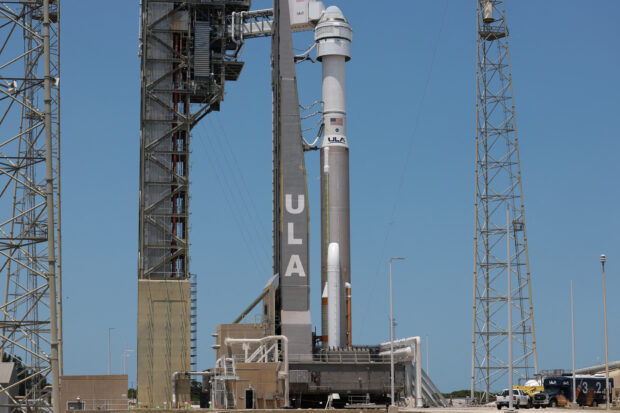
WASHINGTON, United States — The first crewed launch of Boeing’s Starliner to the International Space Station has been delayed again due to a technical issue, NASA said Friday.
The launch in Florida was scheduled for Tuesday but NASA said it is now planned for May 25 to allow teams to further assess a helium leak linked to the service module, which sits on top of the rocket.
Earlier this month, a Starliner launch was postponed just hours before lift-off, with the astronauts already strapped in, due to a separate technical issue.
“The additional time allows teams to further assess” the helium leak, NASA said on its website.
READ: Boeing’s Starliner set for historic astronaut launch on May 6
The two astronauts, Butch Wilmore and Suni Williams, are in the meantime staying in Houston, Texas until the mission is ready.
It is another delay in the highly anticipated mission which has faced years of delays and comes at a challenging time for Boeing, as safety questions surround the century-old aerospace titan’s commercial aviation arm.
READ: Boeing’s Starliner off course in orbit after launch debut
NASA is banking on Starliner’s success for its goal of certifying a second commercial vehicle to carry crews to the International Space Station.
Elon Musk’s SpaceX already achieved this in 2020 with its Dragon capsule, ending a nearly decade-long dependence on Russian rockets following the end of the Space Shuttle program.